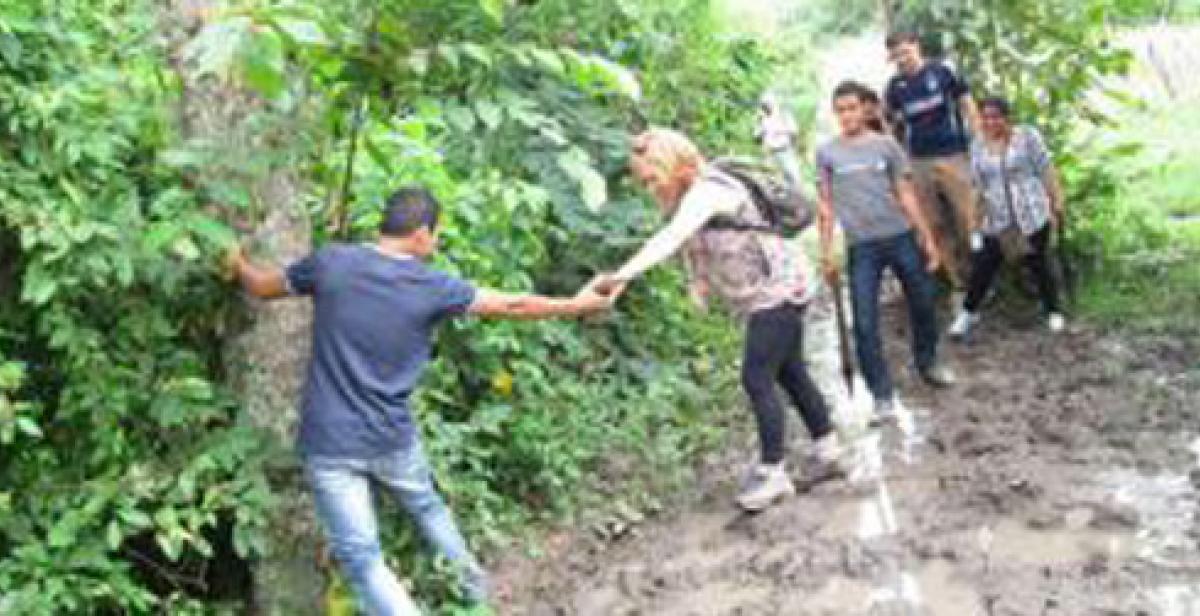The communities we are working with in the Gracias region rely on farming; almost every family owns a farm that acts as their main source of income. This means that everyone has to work on the farm from an early age and the livelihoods of the people in the communities are especially fragile, a bad harvest can have devastating consequences.
Last week, we had our first experience of Honduran farming, helping out on the farms of two of our national volunteers – Milton and Keldin. First we planted coffee on Milton’s farm. What we didn’t realise was that to get to the farm we had to practically hike up a mountain. We struggled up; passing rivers, forcing our way through foliage and ducking under barbed wire before we arrived panting and breathless at la finca de Milton. Milton has to make that walk twice a day, at the crack of dawn to start work at 6-7, returning after 3. It takes him forty minutes; it took us more than double that. It was the same story when we visited Keldin’s farm later in the week. The land here is incredibly disordered with nobody in charge of distribution, which means most families end up with farms around an hour walk from their home.
The nationals taught us how to plant coffee and we all had a go using hoes and machetes. While we hadn’t used these tools before, the nationals have been using them for over a decade – most start working on farms at age 3 and start using tools at around 10-11 – and it was clear how comfortable they were with them. Some simply stood with a machete resting against their wrist, although many of their hands are scarred from the years of farm-work. Along with coffee many farms also grow maize, beans and various fruits. These were especially important when the disease roja destroyed many of the coffee plants in the area. Diseases such as roja and adverse weather conditions can have a large detrimental effect on the livelihoods of people in the community. Thankfully, most people in the community know each other and have many relations, so when it’s clear that one family is struggling they’ll get a lot of help from the community.
After ‘mastering’ the art of planting coffee, we went to Keldin’s farm to learn about the organic farming methods promoted by our partner organisation – Red COMAL. This involves avoiding chemical or artificial fertilisers, which can have damaging effects on the soil, and instead using a mixture of organic fertiliser and a “microorganism soup”, which smelt like a weird combination of manure and yeast. This process is far cheaper and better for the environment, but unfortunately Keldin’s family is one of only 20 that practise organic farming in the area, surrounded by over a hundred farms that still use pesticides and chemical fertilisers. This made it clear to us just how big of a task Red COMAL has on its hands. In these communities peoples’ fates are heavily intertwined with that of their farms, the organic farming method championed by Red COMAL is more sustainable than the damaging artificial method. Hopefully we can make it spread.
Written by ICS volunteer Daniel Fine



